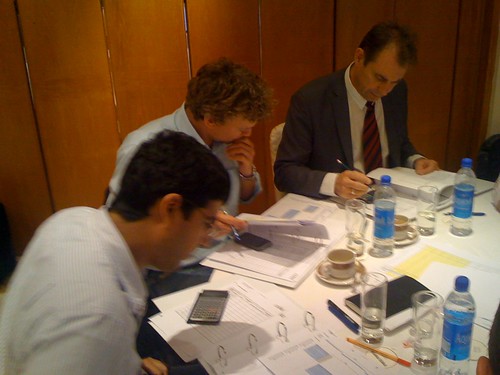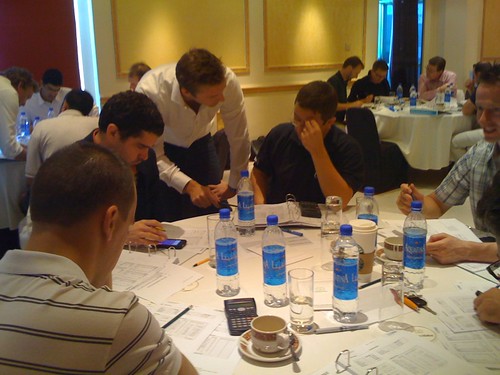Learning by discovery and collaboration once again proved its value.
This week we spent time in Oman working with COWI Gulf. Together with their finance department we developed a 2 day training on the ins and outs of running a project from the financial point of view.I.e. are we on track financially, does this tally with our budget and that sort of stuff

The challenge here is always: how does one make a subject fun and engaging when it is already considered drab and dull before we even get started.
The traditional approach is of course to arm yourself with a large deck of power-points outlining the does and don’t of financial management.
That may be how you teach finance – but that is not necessarily the best way to actually learn finance.
So instead we created a scenario that very much resembles their day to day situation, with the problems and pitfalls of real life and had them work through that in teams of 3 – if they got stuck they could ask questions – but essentially they worked it out between themselves – collaborative learning in full bloom – what a pleasure!

Next week we shall take it up a notch…